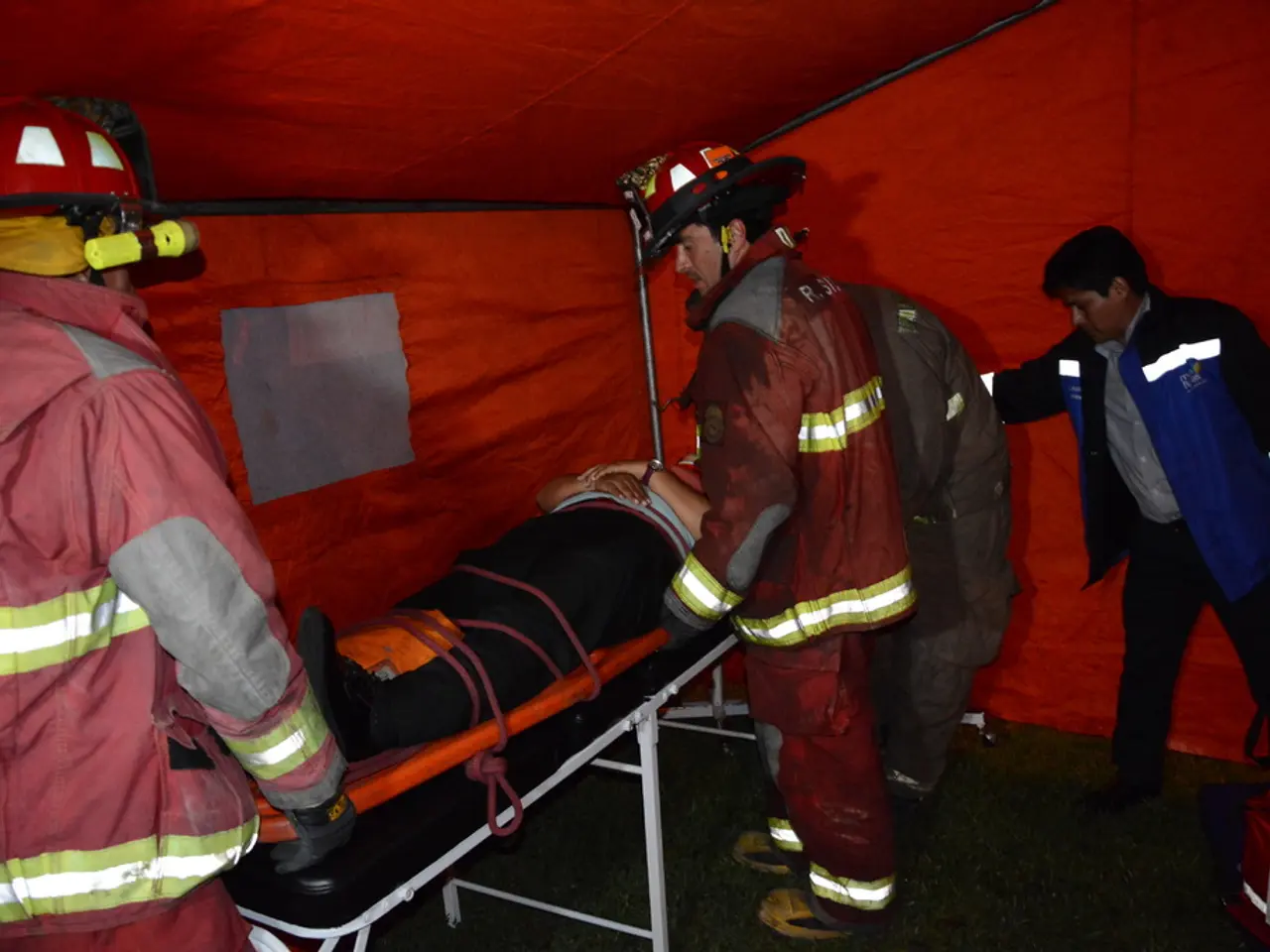Sweating it Out: Exercise Makes Cancer Recurrence Less Likely Than Medication, Study Shows
Regular physical activity may offer more effectiveness in preventing cancer reoccurrence compared to medication.
Been diagnosed with cancer? Lace up those sneakers, buddy! A long-term international study has just shown that regular exercise could significantly slash the risk of cancer recurrence, way more than some meds. Health experts are calling it a game-changer over here!
So, how'd they find this gem of info? In the CO21-Challenge study, researchers investigated the influence of regular exercise on cancer recurrence risks among advanced colon cancer patients who'd already gone through surgery and chemo. The study, published in the slick "New England Journal of Medicine," gathered 889 lucky folks from six countries, half of whom got a three-year exercise program, while the remainder just got health info on the side.
To meet their goals, the exercise group received personal training sessions twice a month for three years, then once a month. Their weekly goal was an equivalent of three to four walks of 45 to 60 minutes - they could pick their preferred exercise.
The Numbers Don't Lie
And boy, did the results speak volumes! After eight years, mortality plummeted by 37% in the active group. Plus, these movers and shakers saw a 28% lower risk of cancer coming back compared to the health info-only peeps.
Christopher Booth, from Queen's University in Canada and the study's lead author, put it this way: "Normally, about 30% of colon cancer patients in stages two and three rekindle the disease. Now, with exercise, they can improve their chances of survival, blossom, and live longer!"
Exercise: The Better Tab
Julie Gralow, an Asco bigwig with no ties to the study, chimed in, "The benefits of exercise are just as impactful as many meds, packing a 28% lower risk of disease and a 37% lower risk of kicking the bucket." These pricey meds usually have nasty side effects. Gralow concluded, "Exercise kicks butt over meds!"
Although the study focuses on colon cancer, researchers believe the findings can also apply to other types of cancer. Booth stresses that further research is underway to test that theory. However, initial data hinted that breast and prostate cancers were also less common in the exercise group.
Booth and co. are urging doctors everywhere to switch gears and discuss exercise programs with their patients post-treatment. Implementation could be a breeze: The cost per patient runs about 2,635 to 4,400 euros - a lot less than most cancer meds. Most importantly, patients should get solid support, not just recommendations.
Exercise Types You'd Enjoy
From brisk walking and jogging to pedaling your heart out on a bike or swimming laps, moderate-intensity exercises seem to be the key to these wonderful benefits. So grab your friends, join a gym, or head outdoors - just keep moving!
[1] ntv.de[2] hny[3] American Society of Clinical Oncology[4] New England Journal of Medicine[5] Journal of Clinical Oncology
- In light of the recent CO21-Challenge study, community policy and employment policy could be revised to encourage workplaces to provide exercise programs for cancer survivors, as regular exercise has been shown to reduce the risk of cancer recurrence significantly more than certain medications.
- As a result of the study published in the New England Journal of Medicine, science and medical-conditions related to fitness-and-exercise and therapies-and-treatments for cancer patients have gained renewed importance, with health-and-wellness advocates emphasizing the significant benefits of exercise in managing and preventing cancer recurrence.
- In addition to its potential impact on cancer recurrence, the CO21-Challenge study suggests that regular exercise could help reduce the risk of various medical-conditions, including breast and prostate cancer, further underscoring the importance of promoting exercise policy in community and employment settings.




